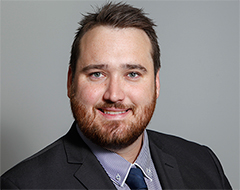 Legal cases involve lots of different types of evidence.
Legal cases involve lots of different types of evidence.
Sometimes there will be a dispute about the facts, i.e. what actually happened. Evidence of this type is usually given by lay witnesses who saw the alleged events or related events unravel.
Other times, the Court will require the assistance of an expert in a particular field to share their expertise about a matter that is in dispute.
Ordinarily, evidence that is simply the expression of someone’s opinion about a particular matter is not admissible or acceptable in Court proceedings.
One exception to the opinion evidence rule arises in the context of expert evidence.
If a person can demonstrate that they have particular expertise in a relevant field, the Court will allow them to provide opinion evidence as they have special qualifications to do so.
This is because judges and lawyers might be experts when it comes to the law but are not experts when it comes to many and most other disciplines.
Expert opinion evidence comes up frequently in construction disputes.
This is because lawyers or the parties themselves are often not equipped to report to the Court with accuracy about why a particular construction or building work is deceptive, how said defective works breach Australian Standards and/or Construction Codes, recommend manners in which the defective work can be rectified and quantify the cost of doing so.
An expert who is engaged in a construction dispute will be required to prepare a written report that acknowledges they have read and agree to be bound by NCAT’s Expert Witness Code of Conduct or the Expert Witness Code of Conduct set out in the Uniform Civil Procedure Rules or both.
This includes providing evidence of their experience and qualifications and where they express an opinion in their report, the basis on which they do so.
Such a report will also include what is known as “Scott Schedule”.
A Scott Schedule is a table of information that identifies all of the relevant defects, the recommended rectification method and the cost of rectification.
In construction disputes it is common for the builder to have its own expert and the parties suing the builder to have their own expert.
Usually, if a Court or Tribunal finds in one party’s favour, they will reference the expert’s report and in particular the Scott Schedule to determine what rectification works need to be completed and/or if a money order is to be made to calculate the amount of money payable by the builder to the Applicant/Plaintiff in reference to each item that has been proven to be defective.
One of the biggest mistakes parties in building disputes make at the beginning of their matter is paying thousands of dollars for a building inspection report from an inspector who is either not qualified to provide an expert opinion or whose expert’s report does not meet the technical requirements of the expert’s code of conduct meaning it cannot be used in legal proceedings.
While it is important to be able to articulate your claim with specificity as early as possible, you should seek some preliminary legal advice before engaging anyone to provide a report.

Daniel McKinnon
Since graduating with two degrees in Law and Commerce from the University of Wollongong, Daniel’s spent over ten years solving a wide range of legal problems for the people of Western Sydney.
